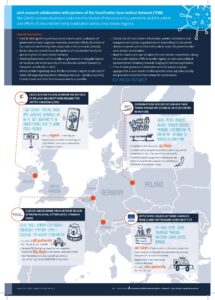With its annual Cross-Border Impact Assessment, ITEM provides more insight into the effects on cross-border regions of European and national legislative and policy initiatives. The report is intended as a valuable tool for policymakers at regional, national and European level in making decisions regarding (cross-)border regions. These impact assessments notably help to identify existing or future cross-border effects and are thus contributing to the political debate.
The current research dossiers are the result of a successful collaboration between ITEM, its researchers and its partners.

